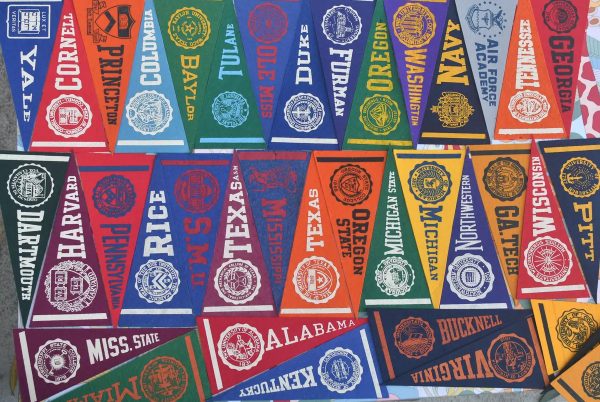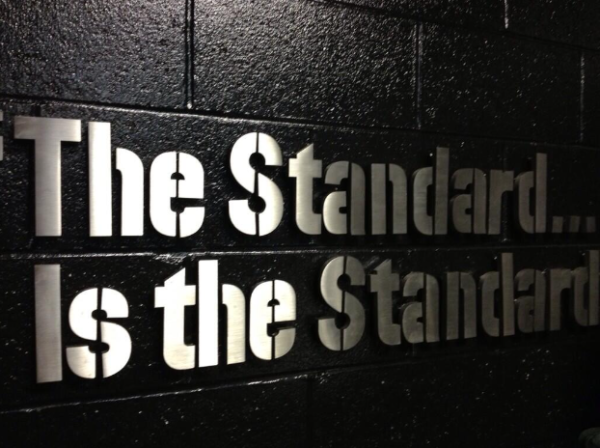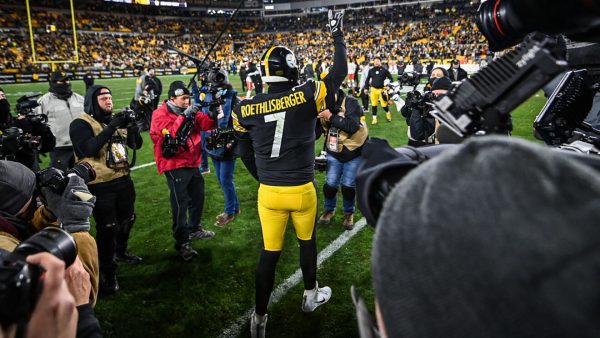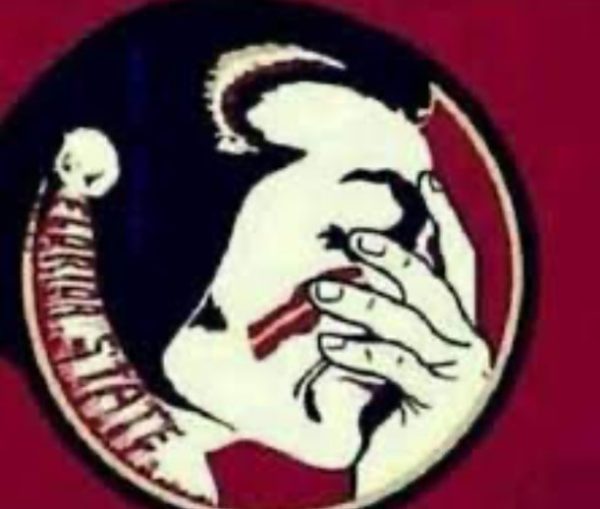Christmas is over. Don’t worry. It won’t be long until stores will start decorating for it again soon.
April 16, 2020
There are many things that Americans love: football, fast-food, Oprah Whifrey, reality tv shows, guns, and peanut butter. However, there is nothing that Americans love more than holidays, especially Christmas.
Every year we gather around our plastic, car-freshener smelling, conifer trees and hold hands as we sway in a circle singing the words “ding dong”, “jing-a-ling” and “kumbaya”.
At the end of every December, Christians celebrate one of the most important holidays of their religion. Although Christmas celebrates the birth of Christ, it has become much more than that. Over the years it has become so insanely commercialized that it’s lost its true meaning.
Christmas is about the presents. That’s what it’s about now: presents.
No longer is it a holiday about religious beliefs and spending time with loved ones. Now it’s become a money-making tactic for big businesses to earn profits. Christmas is about the presents. That’s what it’s about now: presents.
I am not the Grinch or Scrooge. I am nothing like the characters we see in Christmas marketing propaganda. My vendetta against Christmas isn’t against the religious holiday itself, but by how twisted we’ve made it. Over a month later, I am so grateful that the Christmas hype has ended, and we can finally go back to our normal lives again.
Christmas has turned into a time for people to spend a whole year-savings on toys, clothes and electronics or other gifts for their loved ones. It’s a time of spending and splurging. For people who can’t afford presents, Christmas sucks.
Imagine waking up and seeing little to nothing under your tree on Christmas morning. It would be awful, especially for younger kids who may not understand the concept of money yet. My grandfather always told my father the story about one of his first Christmases.
He was an only child with a single mother and the only present they could afford was a tin soldier each year. Growing up, he always thought he was “naughty” because he did not receive a pile of presents from Santa. He just didn’t understand how difficult it was for his mother to afford the luxuries others took for granted.
The commercialization of Christmas dates back to the early 1900s and has been growing ever since. Although Christmas first gained popularity during the time of Roman Emperor Constantine, its marketing powers did not grow until this past century.
Many Christmas traditions come from religious scripture or cultural celebrations, however, the media has created the holiday we know today.
In 1870, Christmas was declared a Federal Holiday in America, and about fifty years later, the media started to establish the traditions we celebrate today. Popular songs and movies created famous characters such as Rudolph, a shy Reindeer who is ostracized by society when he can not conform to the jobs and tasks he is forced to complete.
Another tradition established by the media, is the beloved Santa Claus. Coca-Cola released an ad showcasing Santa in a red suit and a big white beard. This ad established the image of the God-like figure whom children worship and parents praise to this day. Santa Claus has become more crucial to Christmas than the person for whom the day is named.
To add to the Christmas mythology, the movies we watch every year help to brainswash us. Why do we watch these same films every year? Not for “family traditions” like we say we do, but because they display every single one of the archetypes that Americans love so much. Chaos, food, presents, trees, snow, and family.
These movies just add on to the marketing powers of businesses, telling your average Miller, Smith, White and Wilson families that they NEED to get gifts in order to have a good Christmas. For example, ‘National Lampoon’s Christmas Vacation”, one of the most successful Christmas films of this generation, displays all the chaos of the holidays.
However, the entire movie is centered around materialism and the want for a Christmas bonus to pay for a new swimming pool. Although the Grislwold family bonds strengthen, the whole movie is based on how their family was torn apart over the commercialization of Christmas, yet glued together once they get the money and presents they wanted.
The marketing strategy of Christmas starts months before this holiday arrives. The beloved Black Friday shows just how materialized this holiday has become. The economy depends on Black Friday for companies to break even, but its effects weigh on the holiday as a whole. Black Friday and Cyber Monday are all about spending. Christmas propaganda makes it appear that one MUST buy presents to showcase their love for family, friends and significant others.
Nothing is wrong with the religious holiday Christmas. What is wrong is how commercialized it’s become and how it is shoved down the throats of all American consumers.










